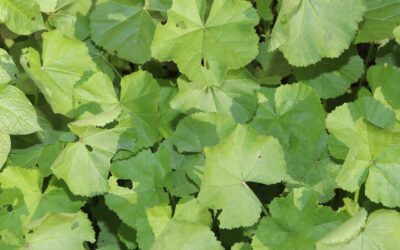Mallow weed is a common problem for commercial facility and property managers, quickly taking over landscapes if not properly controlled. These pesky weeds can be identified by their round, fuzzy leaves and small pink or white flowers. In this ultimate guide, we'll...
Recent Posts
The Landscaper’s Guide To Plant Growth Regulators
Landscapers often struggle with controlling plant sizes and health. Plant Growth Regulators (PGRs) are organic compounds that modify plant growth. This article will guide you in using PGRs to solve common landscaping challenges. Read on for a landscaper's guide to...
How Lawn Pest Control Enhances Overall Landscape Health
According to recent research by the University of Princeton, lawns account for over 40 million acres of American land today. Maintaining a lush, green space is more than just a matter of aesthetics; it's about creating a healthy, sustainable outdoor environment. One...
In the United States, around 15% of the population relies on private wells for their water needs.
This means that millions of people use a well water system every day of their life. This means that anyone who doesn’t have access to a city water system has little choice but to maintain a well. Keeping a well system working requires some maintenance.
Let’s take a look at the best ways to maintain your well water system and make sure that you don’t have a problem.
What Is Your Well Used For?
First, lets discuss some of the main uses for Wells. Wells are used for a variety of purposes depending upon the location and availability of water. Some well water systems are used for irrigation, others for drinking water. If you don’t drink out of your well water, having the pump check every 3 years is often enough.
If you use your well water as a primary source of drinking water, you may want to have your system checked every year. The result of this process will ensure that your well water pump system continues to work and deliver clean water. If well water is your sole source of drinking water, there are further steps you should take.
Well Water Filters
Filters for well water systems have come a long way in the last twenty years. This is why you can be sure that you aren’t getting any sediment or contaminants in your water with a good filtration system. Depending on what filters you use, change them as recommended.
If you fail to change your well water filters they will stop blocking contaminants. Leading to water that is unsafe to drink at worst, and even at best, water that may have a funny flavor. You can also determine what type of filter you need by having the raw well water tested.
Cleaning Water Well Systems
You should clean your well at least once a year. You will know if you need to clean it more due to the type of soil or environment because it will look dirty. Not cleaning the well can lead to contaminants getting in or filters being overwhelmed and not lasting as long as they should.
Depending on the type of water and contaminants in your area, you can invest in a treatment system. Water treatment for well systems can prevent the problems of hard water and other issues that would arise without it.
Keep Chemicals Away
One of the best things you can do is make sure that no contaminants get on the ground near your well water system. This can prevent chemicals from leaching into the well that could be harmful to you or your family.
Your Well Water System
Your well water system can give you years of clean water that you can use to live on. As long as you maintain the system it can last for well over a decade. If you want to use your well water system to compliment your landscaping, contact us.
We know how to get the most of your irrigation options and landscaping and can help with problems that arise.
Contact Us
"*" indicates required fields
Recent Posts
Mallow Weed Control: The Ultimate Guide
Mallow weed is a common problem for commercial facility and property managers, quickly taking over landscapes if not properly controlled. These pesky weeds can be identified by their round, fuzzy leaves and small pink or white flowers. In this ultimate guide, we'll...
The Landscaper’s Guide To Plant Growth Regulators
Landscapers often struggle with controlling plant sizes and health. Plant Growth Regulators (PGRs) are organic compounds that modify plant growth. This article will guide you in using PGRs to solve common landscaping challenges. Read on for a landscaper's guide to...



